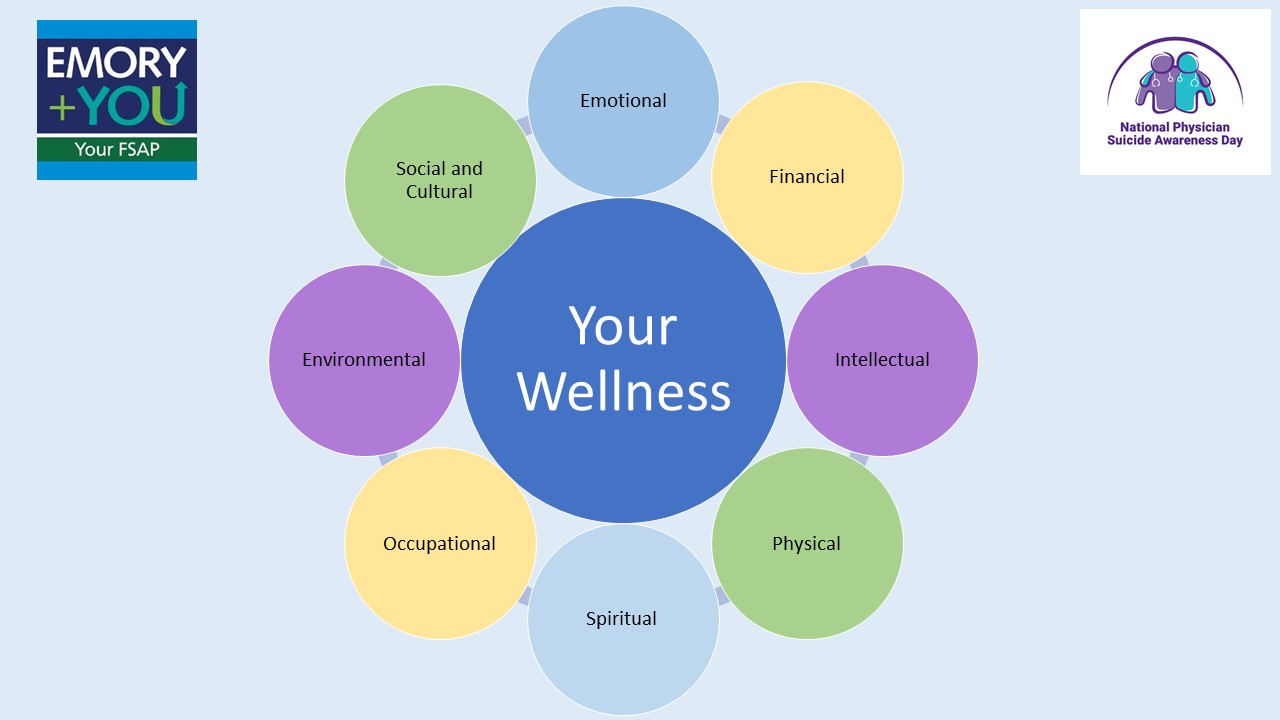Welcome to the GME Well-being Booster. This virtual resource brought to you by FSAP is here to help increase suicide awareness and prevention for physicians, and to highlight the importance of enhancing your mental health and wellness from a holistic perspective. Visit each section below to learn more about how to support the well-being of yourself and other physicians.
Boost your well-being with resources from FSAP, Health and Well-being, the WorkLife Resources Center, Spiritual Health, and other Emory offices. You can also connect to a variety of helpful resources from the wider well-being community.




